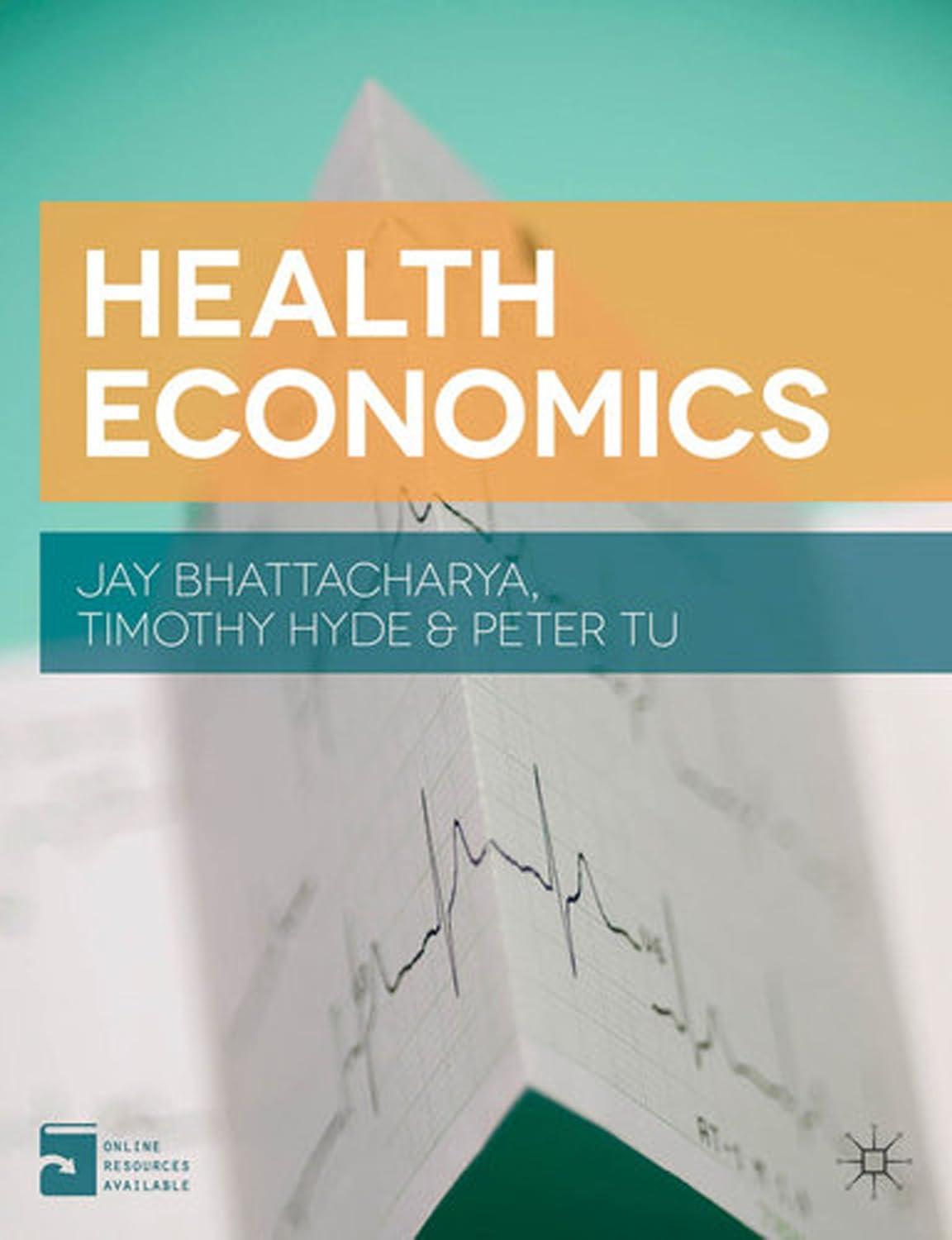Jachuck et al. (1982) report on an analysis of a certain drug designed to reduce hypertension (high
Question:
Jachuck et al. (1982) report on an analysis of a certain drug designed to reduce hypertension (high blood pressure). Such hypotensive drugs are frequently effective but are also linked to side-effects like irritability, a decline in energy, and a loss of sexual interest.
Seventy-five patients with mild hypertension were put on hypotensive drugs and their progress was monitored by doctors and relatives (typically spouses). Suppose that everyone agrees that the quality weight for hypertension is q = 0.8. That is, one year spent with mild hypertension is equivalent to 0.8 years of full health.
a. When asked to rate the treated patients as improved, worse, or unchanged, the doctors rated all 75 patients as “improved.” Meanwhile, the spouses rated 74 of the 75 patients as “worse.”Why might spouses and doctors differ in their opinions about the effect of undertaking hypotensive therapy?
b. Explain why the drugs might be a dominated treatment, and indicate what other treatment(s) might dominate it.
c. Make a one-sentence argument for each of two viewpoints:
• The doctors’ opinions should be used to determine how beneficial hypotensive drugs are for the purposes of CEA.
• The spouses’ opinions should be used to determine how beneficial hypotensive drugs are for the purposes of CEA.
d. Suppose that everyone agrees that the quality weight for hypotensive therapy is q=0.6, which is less than the quality weight for living with hypertension (q=0.8).
And we know that hypotensive therapy costs more than no treatment. Can we conclude that hypotensive therapy is dominated? What other information would we need?When would we conclude that hypotensive treatment is not dominated?
Step by Step Answer:






